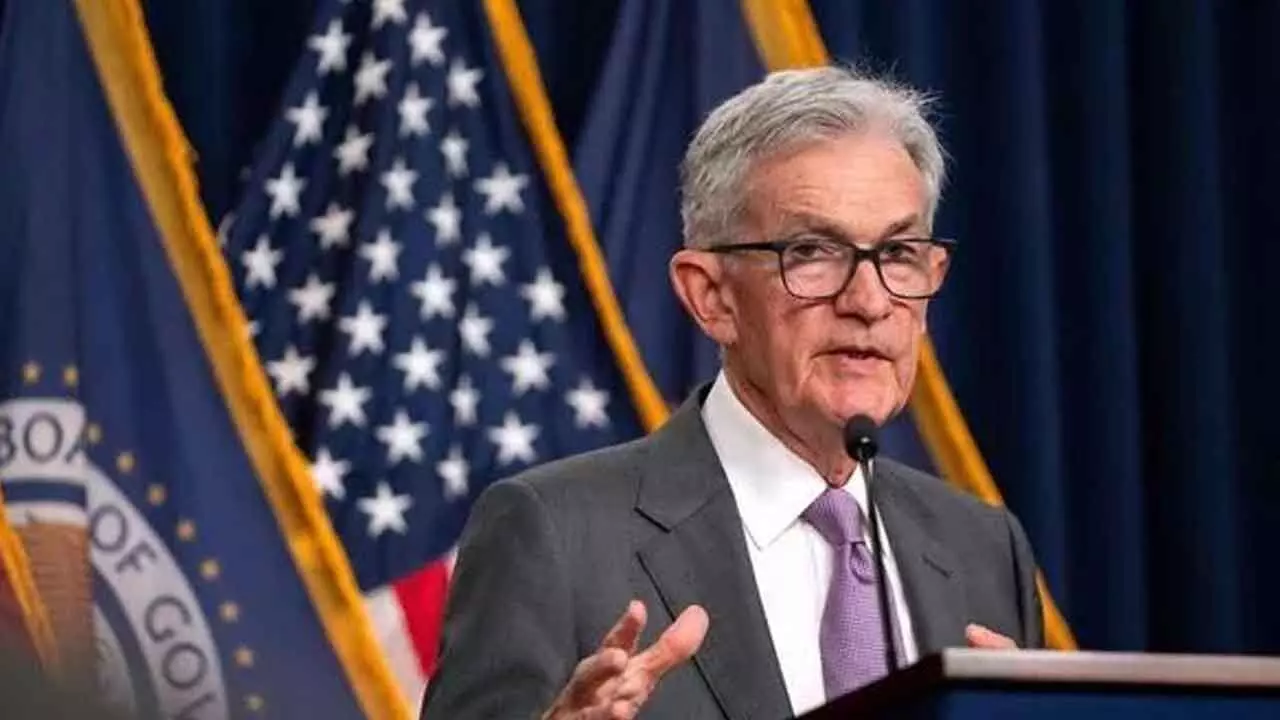World Keeps Fingers Crossed Over US Fed Reserve’s Next Move
EU, Japan, Mexico and Italy reportedly in discussions with the US administration on tariffs issue
US Federal Reserve Chair Jerome Powell

There is still uncertainty over how China and the US will come up with better trade and, perhaps mutually agreeable, terms and end the surcharged trade wars, which are taking a heavy toll of almost all economies
In this period of uncertainty over the US trade policy and its impact on inflation, economic growth and labour market, among other segments, Federal Reserve Chairman Jerome Powell has stated that hat the implications of the recent steps taken by President Trump in respect of reciprocal tariffs will have a greater impact on the US economy as inflation would be way above the earlier expected levels. Incidentally, the two mandates given to Federal Reserve are maximum employment and low inflation. However, the latest data indicates that the country’s GDP growth has slowed down.
The higher tariffs that have been imposed on China will result in supply chain disruptions. The US may not be able to import from China, which could lead to a huge demand and supply gap and a higher inflation.
The current immigration policy may result in fewer job opportunities, while there could be labour layoffs due to cuts in funding to some organisations and institutions.
Financial markets are also faced with uncertainties but Powell expects that the markets will function in an orderly manner, including bond markets, despite some uncertainty and volatility.
Powell maintains, "We're never going to be influenced by any political pressure. People can say whatever they want, that's fine. That is not a problem."
Governor Powell may not be able to immediately cut interest rates unless the evolving data and outlook provide greater comfort on lower inflation and better job prospects.
Recent developments indicate that EU, Japan, Mexico and Italy are in discussion with US administration as regards the tariffs.
U S Secretary Scott Bessent was more pragmatic and optimistic about progress on key trade deals. On Thursday, Trump signalled that he was open to negotiations with trading partners this week, including positive negotiations with China.
These developments are good signs for the markets. It will be a major forward push if USA and China start discussing rather than sticking to retaliation with counter tariffs. However, it is unlikely that international trade will come to near normal in the near future. There is still uncertainty over how China and the US will come up with better trade and perhaps mutually agreeable terms and end the surcharged trade wars, which is bound to take a heavy toll of the global GDP.
Driven to the wall and staring at an empty space, almost every country is now looking for possible alternate trade partners in order to reduce the negative ramifications stemming from the revised tariff structure.
The world is not clear about Trump’s endgame and which way his administration will swing towards on the tariffs front. All said and done, the future course of action will affect vulnerable countries and those with high external debts. They will find it difficult to service in the absence of adequate foreign exchange earnings even as the domestic economy gets impacted currency volatility, which will shoot the cost of handling such debts.
The earlier situation of global cooperation and support will be entirely affected with the anticipated average effective US tariffs rate pegged at 22.5 per cent, which is a massive 20 per cent increase over the rates in the previous year. In fact, this is the highest level since 1909.
According to World Economic Forum (WEF), these signal possible detachment from global cooperation and the international economy in general.
Meanwhile, India, which has a trade surplus with USA apart from being among its biggest major trading partners, has restrained from launching counter tariffs on the US. It hopes to have a bilateral trade agreement at least an interim one before the 90-days pause ends to protect its exports and thereby avoid any major impact on US exports by mutually agreeing to tariffs cuts on major imports.
As a result of the repo rate cut by the Reserve Bank of India (RBI) has resulted in headline inflation coming down and food inflation has. With projections of a favourable monsoon, the expectations are that RBI may cut repo rate further, may be at least 50 basis points in the immediate future. This timely measure will provide a major boost to the Indian economy, amid global uncertainties.
However, one should stay guarded as there has been downward expectation regarding India’s GDP growth, which is likely to be between 6.3 per cent and 6.5 per cent.
(The author is former Chairman & Managing Director of Indian Overseas Bank)

